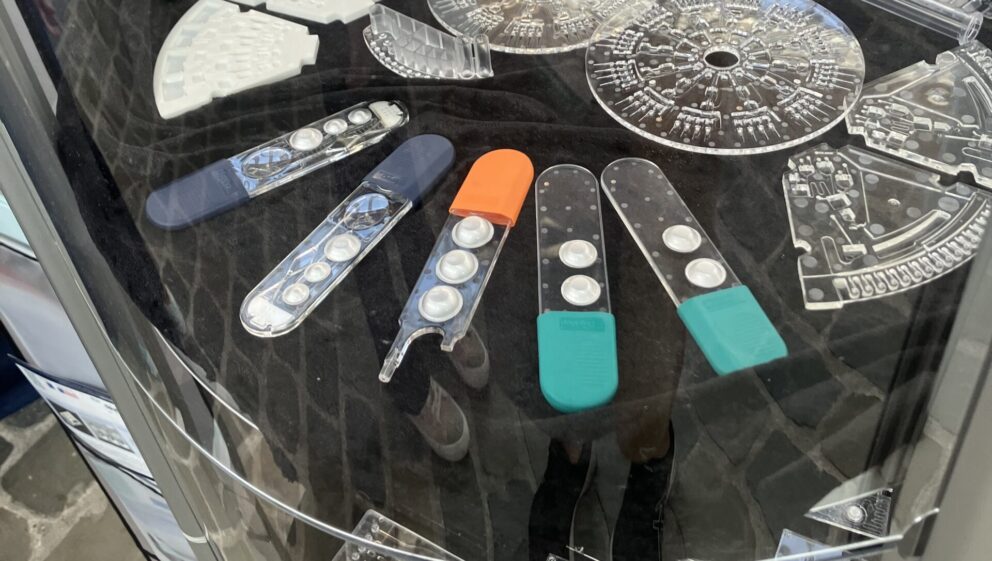The systems – which vary in size from the size of an adult thumb to around the size of a slim paper-back book – typically use human cells and so they are more relevant to human health and disease than using animals. They vary hugely in size, price and complexity, so it was fascinating to find out more.
The event attracted people from across the globe – Japan, Turkey, USA, China, UK, South Korea, Israel, India and the EU. In addition to Animal Aid, there were other animal protection groups, academics, MPS developers and manufacturers, regulators, drug companies, contract research organisations and PhD students. The event ran over several days and involved:
- hands-on sessions where it was possible to see and use some of the systems, as well as hear more about them and to speak to the companies making, developing and marketing them.
- Trade stands where products were on display and asking questions and touching the items was actively encouraged!
- Presentations on subjects as diverse as MPS in space, the importance of gender and diversity in these systems, how MPS can incorporate ‘breathing’ and ‘beating’, how they can be used to combat cancer, elucidate different types of toxicity and even how AI – artificial intelligence – is being incorporated and is shaping the future of MPS.
- Hundreds of poster presentations on a breath-taking number of different areas
- Panel discussions and the chance to ask questions of the experts, which was often as illuminating as the presentations.
All of these elements not only described the newest developments, but also the barriers to implementing these new technologies and the opportunities they represent – there was even a lecture about these systems are being taken into space and how the unique properties of micro-gravity effect the MPS.
It was a fascinating few days, with lots to learn, relationships to cement and new opportunities to explore. I look forward to sharing more details and information in the coming weeks and months.
Whilst the presentations from the MPS WS are not online, the presentations are online from the European Chemicals Agency (ECHA), from their own workshops to discuss the roadmap to phase out animal testing for chemical safety assessments. The sessions were held in Helsinki on Monday and Tuesday this week.
Watch the ECHA workshop


